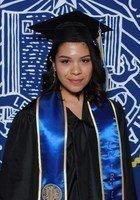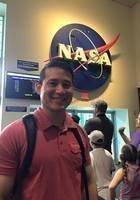Connect with hundreds of tutors like Diana
Who needs tutoring?
FEATURED BY
TUTORS FROM
- YaleUniversity
- PrincetonUniversity
- StanfordUniversity
- CornellUniversity

Diana
About Me
I aspire to inspire others to learn and to reach personal goals. I get a sense of fulfillment and satisfaction when I am able to help others and see them progress. I learn from my mistakes and experiences and I believe that guiding others into the right path is one of the best things that you can do. I have previously tutored family members and peers in math and biology. I like helping others learn and guiding them to get the motivation to become independent learners. I studied and received my Bachelors of Science in biology at the University of California Irvine. Biology is one of the greatest passions in my life, everything new that I learn amazes me, and engages me more and more each time. I believe in the healing and preventative powers of food in health thus, I aim to one day become a nutritionist/dietician and help in the fight to diminish cardiovascular diseases among other problems.
Education & Certifications
Q&A with Diana
Connect with a tutor like Diana
Connect with a tutor like Diana
Tutors with Similar Experience

Joseph
10+ YearsMoravian College and Moravian Theological Seminary
Bachelors, Political Science/Math
View Profile
